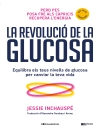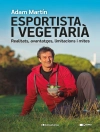In ‘Old Cookery Books and Ancient Cuisine, ‘ William Carew Hazlitt embarks on a culinary journey through the annals of food history, meticulously unraveling the rich tapestry of gastronomy from ancient times to the early modern period. Hazlitt’s erudite prose is laced with both wit and scholarly precision, drawing upon an extensive range of historical texts and cookery manuscripts. The book not only catalogues fascinating recipes and cooking techniques but also contextualizes them within their societal norms, shedding light on how cuisine reflects cultural mores and everyday life during the eras examined. This work serves as both a historical document and a literary reflection on the evolution of culinary practices, marking it as a significant contribution to food literature and history. William Carew Hazlitt, a noted bibliophile and antiquarian, possessed a profound interest in the intersection of literature and culinary arts, which likely informed his exploration in this book. His background in literature, combined with a passion for historical texts, positioned him uniquely to curate and analyze recipes as texts worthy of literary examination. Hazlitt’s insights reveal not just the ingredients and methods of his subjects but also the societal structures surrounding the act of cooking and eating. ‘Old Cookery Books and Ancient Cuisine’ is highly recommended for readers who appreciate the intricate ties between food, history, and culture. Whether you are a culinary enthusiast, a history buff, or simply curious about the evolution of gastronomic practices, Hazlitt’s work offers invaluable insights and an engaging narrative that will enrich your understanding of the past and its enduring influence on contemporary culinary arts.
About the author
William Carew Hazlitt (1834–1913), the grandson of famed British essayist and critic William Hazlitt, was a prominent bibliographer, editor, and writer of the 19th and early 20th centuries. Engaging deeply with literary history, Hazlitt was an enthusiastic procurer of early literature, a passion reflected in his extensive work on compiling bibliographies and editing works of older English literature. His profound interest in culinary history is best demonstrated in ‘Old Cookery Books and Ancient Cuisine, ‘ where Hazlitt delves into the evolution of cooking and eating habits throughout European history. This book has served as a foundational reference for food historians and provided a window into social customs and dietary preferences of past times. Hazlitt’s stylistic approach combined scholarly diligence with an accessible narrative tone, making his literature both informative and enjoyable to read. Beyond culinary writings, his other significant contributions include ‘A Manual for Collectors of Books’ and ‘The Venetian Republic, ‘ both testaments to his scholarly versatility. Hazlitt’s literary style often incorporated detailed research with a descriptive flourish that remains influential in the realms of bibliography and cultural historiography.












